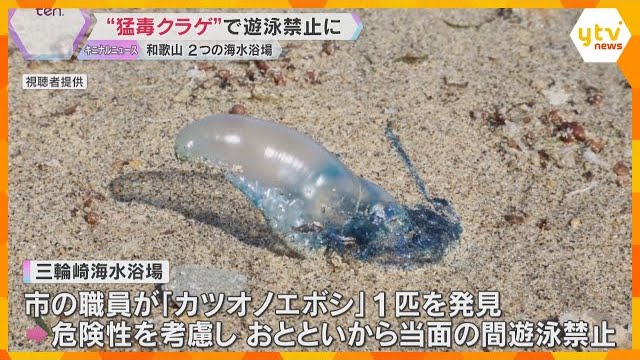Wakayama, Aug 02 (News On Japan) - Two beaches in Wakayama Prefecture have been closed to swimming due to the presence of highly venomous jellyfish.

According to Shingu City officials, a citizen reported seeing a Portuguese Man O’ War washed up on Miwasaki Beach on July 29. Upon investigation, one specimen was confirmed, prompting the city to ban swimming from July 30 onward until further notice. Officials will use drones to monitor the area and determine when it is safe to resume swimming.
Shingu City's Agriculture, Forestry, and Fisheries Section Chief, Yuji Kawamura, stated, "There are no visible Portuguese Man O’ Wars today. Even dead ones are dangerous, so please do not touch them."
About 20 Portuguese Man O’ Wars were also found at Nachikatsuura Town’s Blue Beach Nachi on July 28, leading the town to similarly prohibit swimming at the beach until further notice. No injuries have been reported.
The Portuguese Man O’ War, with its blue-white float measuring 5-10 centimeters, resembles an eboshi (a traditional Japanese hat) and carries venomous tentacles that can cause intense pain similar to an electric shock if touched.
Source: YOMIURI















